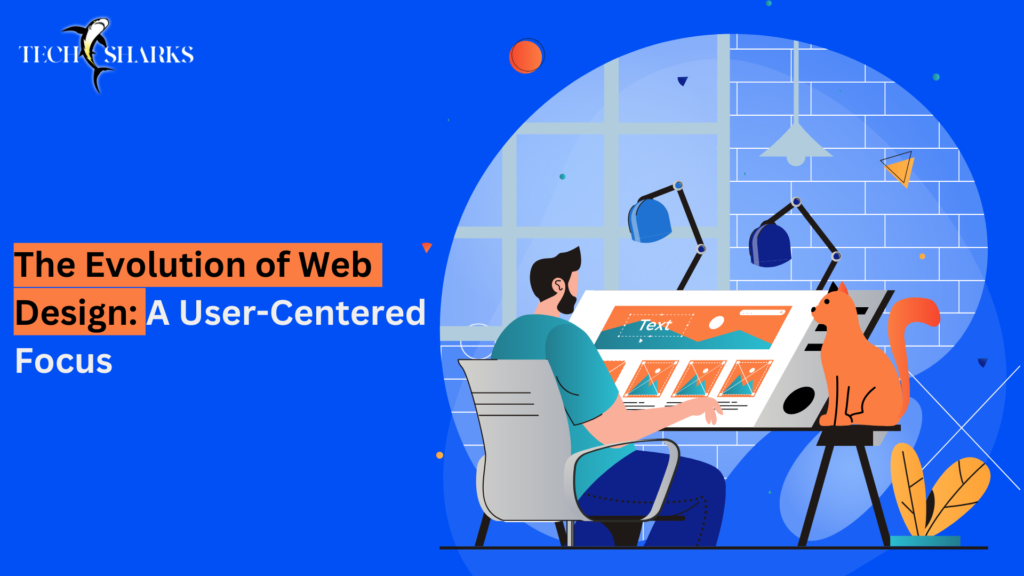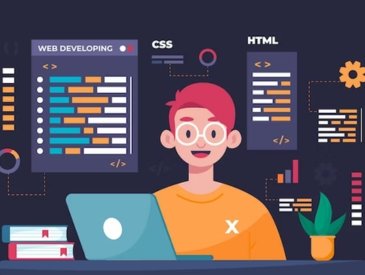As we approach 2025, web design is evolving quickly. Websites today need to do more than just look good—they need to provide smooth, personalized, and engaging experiences. Two trends that are set to dominate in the coming years are dark mode and immersive UX. These features are changing how users interact with websites, offering a mix of comfort, customization, and visual appeal.
The Evolution of Web Design: A User-Centered Focus

Web design has come a long way. In the past, websites were often static and text-heavy. Now, trends like minimalism, responsive design, and bold fonts are popular. But looking ahead to 2025, the focus is shifting even more toward user-centered design. This means creating websites that adapt to what users want and need, making every visit feel personal.
By 2025, web design will prioritize personalization and immersion. Features like dark mode and immersive user experiences (UX) will become more important as users expect websites that are easy to use and visually attractive.
Why Dark Mode is Popular and Will Stay
Dark mode has become a major trend in web design, and it’s not going anywhere. Dark mode reduces eye strain, making it easier to look at screens for long periods. Studies show that over 80% of users prefer dark mode when it’s available.
Dark mode also gives websites a modern look. The contrast between dark backgrounds and bright elements makes websites more visually appealing. It can help save battery life on devices like smartphones with OLED screens. Because of these benefits, dark mode will likely become a standard feature for most websites by 2025.
From a branding perspective, dark mode gives websites a sleek, professional look. Many brands are using dark mode to create a premium feel for their online spaces. Designers are finding creative ways to use dark mode to enhance visual storytelling and increase user engagement.
Immersive UX: The Future of Online Interaction
While dark mode focuses on visual comfort, immersive UX is all about creating deeper connections between users and the digital world. With augmented reality (AR), virtual reality (VR), and 3D design, websites are becoming more interactive.
By 2025, websites won’t just present information; they’ll offer more engaging experiences. For example, imagine visiting an online store where you can view a product in 3D or use AR to see how it looks in your home. These kinds of immersive experiences are already becoming more common and will change industries like e-commerce, real estate, and travel.
Motion design will also play a role in immersive UX. Subtle animations and interactive elements will guide users through websites, offering real-time feedback. By 2025, immersive UX will be a must for websites that want to keep users interested and engaged.
Personalization: The Key to Future Web Design
As technology advances, web experiences are becoming more personalized. By 2025, websites will use artificial intelligence (AI) and machine learning to customize the experience for each user. Rather than simply remembering past actions, websites will predict what users want and adjust the content and layout in real-time.
For example, if you often browse late at night, the site might automatically switch to dark mode. Or if you frequently shop for certain items, the website could adjust its layout to highlight those products. This personalized experience will create a stronger connection between users and brands.
By 2025, personalization will be essential for websites. Users will expect websites to know their preferences and provide content that suits their needs.
Techsharks: Leading the Way in Web Design Innovation
Techsharks (Techsharks.in) is a company at the forefront of web design innovation. Known for its creative approach, Techsharks combines modern web technologies with user-friendly interfaces to deliver cutting-edge digital experiences.
They embrace dark mode and immersive UX, crafting websites that are both visually appealing and highly functional. By focusing on personalization and interactivity, Techsharks helps businesses create stronger connections with their users. As a leader in web design trends, Techsharks is shaping the future of how we experience the web.
Augmented and Virtual Reality in Web Design
Augmented reality (AR) and virtual reality (VR) are transforming how people interact with websites. By 2025, these technologies will become key to immersive UX, letting users engage with digital content in new and exciting ways. For example, in e-commerce, users might use AR to try on clothes or visualize furniture in their home before making a purchase. In real estate, VR tours will allow potential buyers to explore properties remotely.
As AR and VR become more accessible, they will play a bigger role in creating immersive web experiences across various industries.
Keeping It Simple with Immersive Design
While immersive UX is exciting, it’s important not to overwhelm users. Simplicity still matters. Minimalist design ensures that websites are easy to navigate and don’t confuse users. By blending minimalism with immersive elements, designers can create engaging websites that aren’t too complicated.
For instance, clean layouts and simple navigation help users move through websites easily, while animations and interactive elements add just the right amount of engagement. Achieving this balance will be key as AR, VR, and motion design become more common.
Designing for Accessibility
As dark mode and immersive UX rise in popularity, web accessibility must remain a priority. By 2025, accessibility will be a central part of every web design project. Designers will need to ensure that dark mode has sufficient contrast for people with visual impairments and that immersive elements are compatible with assistive technologies like screen readers.
Prioritizing web accessibility will help create digital spaces that everyone can enjoy, regardless of their abilities.
Conclusion: A Future of Personalized and Immersive Web Design
Looking ahead to 2025, dark mode and immersive UX will play a major role in the future of web design. These trends are driving the shift toward more personalized, engaging, and user-friendly experiences. With companies like Techsharks leading the way, businesses can ensure their websites are ready for the demands of the future.
The web of 2025 will be more than just a collection of pages—it will be a space where users can immerse themselves in personalized, interactive experiences. Whether it’s exploring products in AR, enjoying the sleek aesthetics of dark mode, or benefiting from AI-powered personalization, the web is evolving to meet users where they are.




